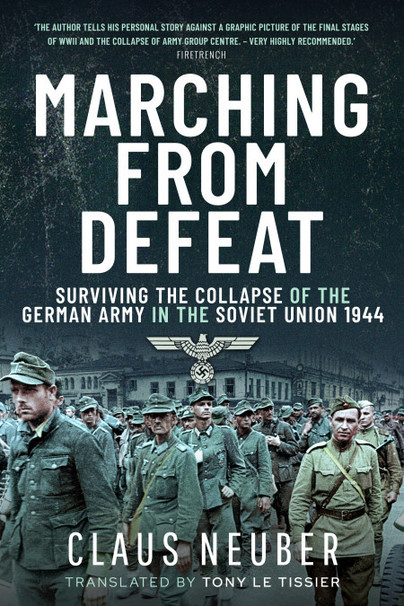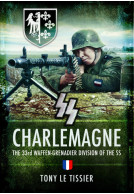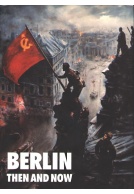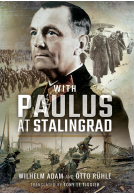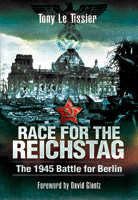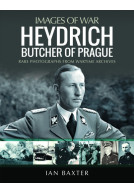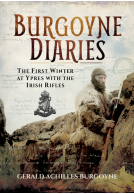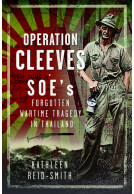Marching from Defeat (Paperback)
Surviving the Collapse of the German Army in the Soviet Union, 1944
Imprint: Pen & Sword Military
Pages: 208
ISBN: 9781399000031
Published: 11th August 2021
(click here for international delivery rates)
Order within the next 4 hours, 37 minutes to get your order processed the next working day!
Need a currency converter? Check XE.com for live rates
| Other formats available | Price |
|---|---|
| Marching from Defeat Hardback Add to Basket | £19.99 |
| Marching from Defeat ePub (1.1 MB) Add to Basket | £6.99 |
In June 1944, in Belarus on the Eastern Front, the Red Army launched Operation Bagration, the massive offensive that crushed Hitler’s Army Group Centre. German soldiers who weren’t encircled and captured had to fight their way back towards their own lines across hundreds of miles of enemy territory. This is the story of one of them, Claus Neuber, a young artillery officer who describes in graphic detail his experiences during that great retreat.
His gripping account carries the reader through the desperate defensive battles and rearguard actions fought to stem the relentless Soviet advance and to breakout from the cauldrons between Minsk and the Beresina river. After almost seventy days as a fugitive, living in the open, depending on the kindness of villagers, enduring extremes of cold, wet and hunger, and living each day with the ever-present threat of betrayal and imprisonment, he found his way back to the German lines.
This unforgettable personal narrative, translated for the first time from the original German, gives a dramatic insight into the impact of the Soviet offensive and the disintegration of an entire German army. It is also compelling reading because it records in day-to-day detail what such a bitter defeat was like and shows how individual soldiers somehow survived through their bravery, ingenuity and endurance – and the companionship of a few loyal comrades.
"This extraordinary tale stands out as the story of a group trapped behind enemy lines, hunted and desperate. The author recorded his experiences into a report soon after he returned to German lines, and his notes were later expanded into this account, providing a fresh, clear narrative which lacks the fuzziness which time inflicts on the memory. This is not a typical Eastern Front story"
WWII History
"This is an amazing account of escape and evasion in the face of mortal danger aided by the kindness of strangers and good luck".
Martin Willoughby, The Wessex Branch of the Western Front Association
Once he returned he wrote down his experiences in 1944, and after the war this writing was made into this current book. This version was then translated into English by Tony Le Tissier to make it available to a wider public. What makes it interesting is Neuber’s single-mindedness during his journey and the fact that he, despite all setbacks, did not give up and was able to reach his own position.
Traces of War
Read the full review here
An amazing read
Lars Gyllenhaal
Read the full review here
The personal account of a young artillery officer of the chaos of the final days of WWII on the Eastern Front and the struggle for survival. The author tells his personal story against a graphic picture of the final stages of WWII and the collapse of Army Group Centre. – Very Highly Recommended
Firetrench
Read the full review here
This offering from Pen and Sword tells the story of a German soldier and his struggle, plus his loses to escape encirclement, during Operation Bagration. Anyone who has an interest in World War II should take the time to read this book, as unlike books that tell you about the conflict, this tells you about the men. That fought and died doing their duty as they saw it. The result of all this is a truly engaging read that brings you closer to the men who were there.
Armorama
Read the full review here
Overall, a thrilling book to read, well written and exciting. A remarkable account of survival behind enemy lines by a 20 year old German soldier.
Dr Adrian Greaves
This book is about young German Artillery Officer Claus Neuber. On the Eastern Front the Soviet decided to do a ‘Big Push’ in order to push the German troops back into Germany. This forced the German army who were already living on beyond their means by going into Russia, to have to fight defensively not only against the Russian push but also the extreme weather and their exhausted supplies. Neuber was forced to withstand almost seventy days as a fugitive, being forced to live out in the open and having to rely on food donations form locals. Claus Neuber did eventually survive and make it back to Germany and this is his detailed account.
UK Historian
This is a very intense and detailed account and in a way it is miraculous that he managed to survive, the book and story in very well told and I think it really helped by being written in a diary style. The translation of the book by Tony Le Tissier is very good and there was never any confusion, in fact I had forgotten that it was a translation. The writer has written this book well and the confusion, chaos and harshness comes through well. This is very good book and I would certainly recommend it to those interested in the Eastern Front of the Second Word War. I am giving this a 4 star rating.
Read the full review here
Sometimes history becomes much more interesting when the writer focuses on just one person. In this case the writer is also the subject of the retreat of the German army, and it's a truly fascinating tale.
Books Monthly
This book is not a history of the Soviet Bagration offensive nor does it purport to be. It’s a highly personalised story of survival and endurance against the odds. In summary, Neuber’s memoir is about desperation and resolve and, as such, it may contribute to a better understanding of why Germany was able to fight on when all seemed to be lost. Whether this resolve was instilled by a genuine loyalty to the Reich, a fear of Soviet retribution or a combination of other factors is, in a way, a moot point since despite this catastrophic defeat Germany was able to continue the struggle for another eleven months with defeat only being conceded after Berlin had fallen to the Red Army and Hitler had ended his life in the Führerbunker.
Phil Curme
Read the full review here
am of the opinion that books like this really give the dimensions of the clash between two huge armies in the east. An ideological clash, primarily, as well as military. But against the background of this clash there are many unpredictable events, such as the help that Neuber receives from the Belarusian population, and then from the Lithuanian and Polish ones. The book also highlights the enormous weight that armies put on the civilian population, caught between two fires and often divided between them by ideologies. In this case, Neuber's memoirs serve once again to remember how war can be terrible and can change man's condition at any moment.
On The Old Barbed Wire
Read the full Italian review here
Rating: 5 out of 5 stars
NetGalley, John Purvis
I have not read many accounts of the war from the German side. This was an interesting story told in the first person. Neuber went through a lot to make it back home to Germany. The book paints a very good picture of the chaos following the Russian attack. I like the chosen cover art. I give this book a 5 out of 5.
Rating: 5 out of 5 stars
NetGalley, Terri Wangard
Here is a German lieutenant’s account of their catastrophe when the Russians destroyed the Army Group Centre in the summer of 1944. Deceptive movements had the Germans believing an attack would come elsewhere and they were totally unprepared. Claus Neuber spent over two months as a fugitive trying to evade Russians and get back to Germany. He endured hunger and illness from bad water, cold and heat, wounds and painfully abused feet. Briefly captured, he escaped, and never saw his colleagues again.
So much propaganda exists about what the Germans did during WWII, what the Russians did. How much is accurate? Does anyone really know? The German soldiers were astonished at Russian cruelty to captured Germans. “Shooting prisoners went against the German soldier’s sense of honour.” What about the stories of cruelty to Russian POWs?
What is true is the awful experience Neuber endured, and the overpowering desire for freedom that kept him on the run.
Rating: 5 out of 5 stars
NetGalley, Patrick Carmen
True accounts from German soldiers of World War 2 are not numerous. Their story isnt told as often IMO as the Soviet soldier or the Allied combatant. Therefore this is a remarkable and horrifying description of what war is really like. Mr Neuber has a story that is detailed . His war time job was in communications and directing artillery as well as observation of Soviet movements on his area or front of White Russia.
His story was given to his commanders as he was one of the few who made it out of his sector. The soviets overwhelming strength pushed past his post and his comrades were faced with either die, be captured and probably die in captivity, or try to push through the Russian lines and make it back to German positions. His descriptions of Russian soldiers cruelty toward captured German troops truly is shocking. I have rarely read about Soviet attrocities but obviously they existed, as this man saw them or knew of others that did. That said the help of the People who were only hard working peasants caught in a horrible struggle between two ideologies made me smile . This book goes over a little heard of story. That of the Eastern front as the war was coming to an end. One of the most well written yet easy to read story of a man that tried to get back home after being given up on. To think he. ran through Soviet as well as German minefields to his freedom left him with one conclusion Maybe an angel had guided him. After reading this I agree.
Rating: 5 out of 5 stars
NetGalley, Joyce Fox
This book is very well written. I imagine some of this must be a factor of Tony Le Tissier's beautiful translation. I experienced everything Lieutenant Neuber did. I felt as though I was there in the battles, his incarceration and his escape. I walked beside him as he experienced these things. Wonderful book and I recommend it for anyone with an interest in WWII history or stories of personal journey. Mr. Neuber's book clearly illustrates the absolute horror of war. It doesn't matter to which country the soldier belongs.
As a youngster seeing the Great Escape on TV I asked why so few Germans managed to escape captivity and the response was that they were not interested in escaping. That myth is destroyed by this book in that whilst escapes from prison camps were less successful, the attempts to break out of encirclement and return to German lines on the Eastern Front were astonishing examples of determination. Few managed to break through to German lines and those that did enjoyed much assistance from the local populations – a paradox given the simplistic post war assumptions that German soldiers were unwelcome. The story is of one who succeeded and is well worth the read.
Michael McCarthy
Michael McCarthy. Battlefield Guide
About Claus Neuber
Claus Neuber was a young artillery lieutenant in the 18th Panzergrenadier Division of the German Fourth Army in the Soviet Union in June 1944 when he was caught up in Operation Bagration, the large-scale Red Army offensive that destroyed Army Group Centre and pushed the Germans back hundreds of miles into eastern Poland. After almost seventy days on the run behind Soviet lines he rejoined the German army. He recorded his experiences in a report written soon afterwards, then expanded his account after the war, but it was not published in Germany till 2014.
About Tony Le Tissier
During many years working in several senior official positions in Berlin - including spells as provost marshal and British governor of Spandau prison - Tony Le Tissier has accumulated a vast knowledge of the campaign the led up to the fall of Berlin.
He has researched every aspect of the 1945 battle for the city in unprecedented detail and has published a series of outstanding books on the subject, inlcuding The Battle of Berlin 1945, Farewell to Spandau, Berlin Then and Now, Zhukov at the Oder, Slaughter at Halbe, The Third Reich Then and Now, With Our Backs to Berlin, Death Was Our Companion, Berlin Battlefield Guide: Third Reich and Cold War and The Siege of Küstrin 1945: Gateway to Berlin.







